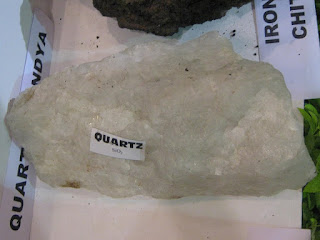Geometrical Dimensioning and Tolerancing (GD&T) system eliminates ambiguities in engineering drawings and brings out the designer’s intent very clearly. It ensures seamless communication between design, engineering, manufacturing and quality teams across the entire organization enabling them working in a concurrent engineering environment.
In the competitive industrial scenario prevailing today, proper application of GD&T system helps the companies to reduce the manufacturing and inspection costs.
This seminar will focus on understanding the system of GD&T and the methods of applying it in real time designs. The seminar sessions will be supported with case studies, examples and exercises.
Course ObjectivesTo impart thorough knowledge in
* ISO system of fits and tolerances
* Calculation of allowances – clearance and interference
* Preferred series of fits for industrial applications
* General tolerance levels in manufacturing processes
* Definition of GD&T features
* MMC and LMC principles
* Types of GD & T – form, orientation, location and run-out
* Form tolerances – straightness, flatness, circularity and cylindricity
* Orientation tolerances – parallelism, perpendicularity and angularity
* Location tolerances – position, concentricity and symmetry
* Run –out tolerances – circular and total run out
* Profile tolerances – profile of a line and profile of a surface Salient features of position tolerancing principle
* Concept of bonus tolerance and its implications
* Interpretation of drawings with GD & T symbols
* Exercises for applying GD & T system in real time applications
* Surface roughness and its measurement
* Representation of surface roughness in engineering drawings
Who should attendPersonnel who use GD&T to design, produce and inspect parts, managers, designers, engineers, production planners, QA engineers, inspectors, machinists, supplier quality personnel, etc
Pre-training skills requiredBasic knowledge of engineering drawings and drafting practices.
Training Methodology
Class room sessions: * Illustrations with solid models and examples
* Exercises for adopting GD & T in real life applications
* Demonstration of measurements of GD & T
* The participants are requested to bring their own drawings for discussions and clarification.
FacultyHighly experienced faculty from IMTMA Technology Centre will conduct this seminar
RegistrationRegistration charges will be Rs.7000/- per participant for Large and Medium Companies (10.3% of service tax extra) and Rs.6500/- per participant for SSI Companies and IMTMA Members (10.3% of service tax extra). This includes comprehensive Course material, Lunch & Coffee/Tea. Registrations will be accepted on 'First come First' basis. Companies interested in participation are requested to return the attached 'Reply Form', along with a Demand Draft/at par payable Cheque, in favour of 'Indian Machine Tool Manufacturers' Association', payable at Pune to the address as mentioned in the reply form. Delegate fee is non-refundable. However, change of nominations accepted.
A certificate of participation will be issued to participants.
For more details, please contact: Mr. Nishant Singh
Indian Machine Tool Manufacturers' Association
503,South Block, 'Sacred World ' , S.no 75/2/2,Jagtap Chowk ,
Wanorie ,Pune -411040. Tel: 91 - 20 - 40091501.
TeleFax: 91 - 20 - 26852047. Email: imtma.pune@imtma.in











